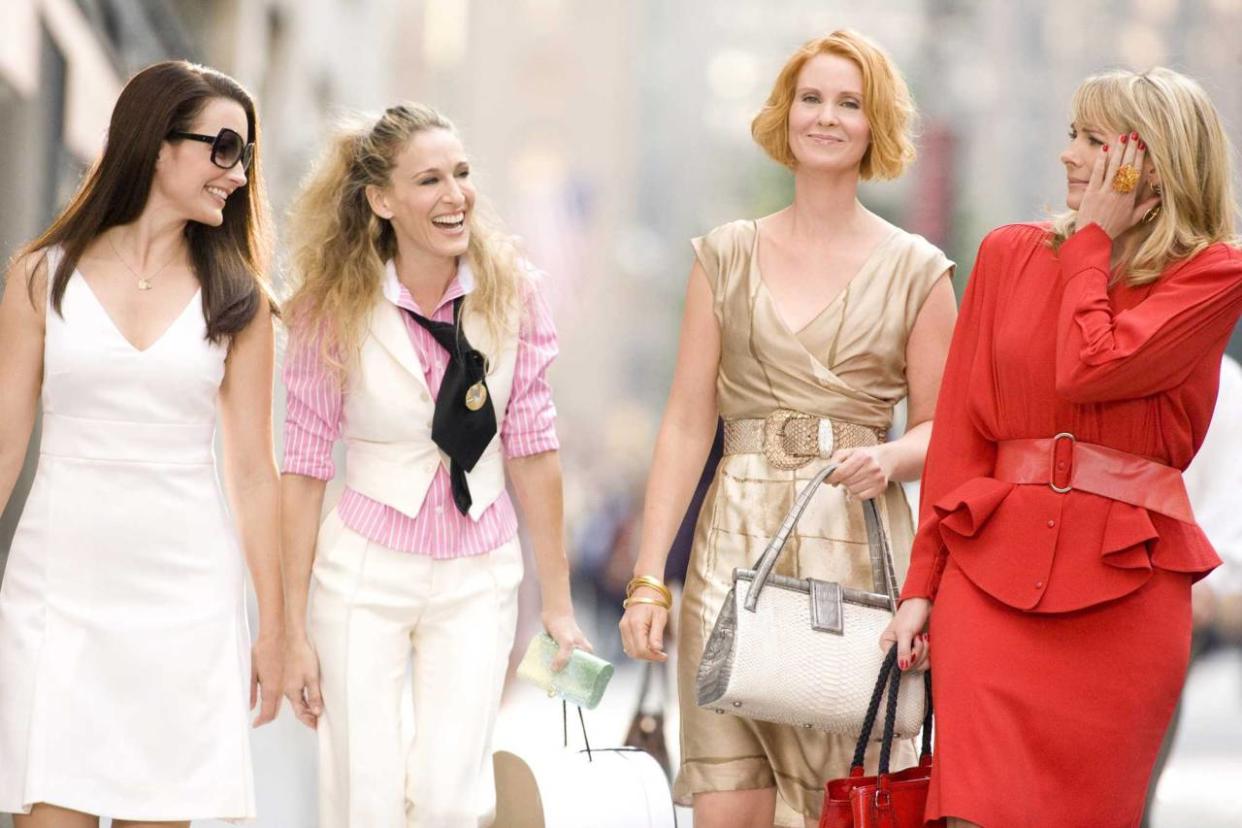The BFF - what does it mean today?

When Cate Blanchett recently told a Variety journalist that she’d had relationships with women ‘many times’ she sent the media into a frenzy over her alleged ‘lesbian past’. Blanchett later clarified “If you mean ‘Have I had sexual relationships with women?’ the answer is no, but that obviously didn’t make it into print… but in 2015, the point should be, who cares?’
She has a point. Why does the word ‘relationship’ carry with it such explicitly sexual overtures? Isn’t Blanchett instead alluding to something that millions of women can relate to but don’t have the vocabulary to discuss? When Lena Denham states “I think about my best friendship – which the Marnie- Hannah friendship in Girls is based on – as like a great romance of my young life” does she also reveal an insight that goes someway to explain her position as the current day feminist icon?
Female friendship can be at turns enriching, edifying, mystifying and downright hurtful. While family carries a pre-existing architecture where your role is defined by your birth order, friendships are an expression of personal investment and self-determination. They are as defining as the DNA you share with your parents – the physical embodiment of your tastes, interests and beliefs. Without realizing it we tend to judge other women by the closeness of other women in their life, subconsciously marking them as suspicious or predatory if they don’t exhibit solidarity traits (see Angelina Jolie) and celebrating them if they do (see Jennifer Aniston).
When Katy Perry allegedly tried to sabotage Taylor Swift’s arena tour, Swift responded by recruiting a collection of her famous girlfriends in a vengeance-themed Sin City style video that in turn celebrated feminine fierceness and served to feed into old stereotypes that women are inherently catty. If the bludgeoningly catchy lyrics weren’t enough to communicate Swift’s outrage at Perry’s stain on the concept of sisterhood, then the role call of famous women recruited for the video made the point crystal clear. Taylor Swift is one of the most powerful women in entertainment. She can call whoever she wants to come and fight on her team, and fight they will. The not-so subtle message to other women: you’re either with us or against us. Debates have raged over Swift’s understanding of BFF and whether it is meaningful and the Bad Blood video does little to counter the naysayers by feeding into the rather limiting idea that women must compete for the top spots in everything from music to dating to friendship. She counters that narrative by playing up her same-sex friendships in social media and, in the context of celebrity with its premium on heightened emotion, she is a largely positive, if contradictory voice for the sisterhood. But at the same time, isn’t that the very essence of female friendship? A deeply nuanced, emotionally charged and contradictory experience that is quite often as powerful as a love affair?
As equality battles rage in the workplace and divorce rates skyrocket, it is important more than ever to build a support structure that works for you. Familiar tropes and character roles are played out in pop culture and they perform a function of supplying us with a codified set of behaviour. But if there is one thing that we should know now, it is that the very nature of being a woman in the 21st century is to exist without easy categorisation. Strong female friendships perform many positive functions, not least the debunking of damaging stereotypes about women’s inability to support each other and celebrate each other’s success, but they are not uniquely defining of self. As gender lines become more and more blurred and antiquated stigmas are challenged, the notion of best friendship too becomes less defined. Female friendships can be wonderful but they aren’t the cornerstone of every woman’s life and nor do they need to be.
It is when we stop viewing friendships in terms of rankings - from acquaintances all the way up to the coveted ‘best friend’ slot - that we will be free of the myth that the measure of any woman is in the presence of a BFF.
Related Reading
Taylor Swift & Karlie Kloss Cover ‘Vogue’ Together
Jamie King on Baby #2, Ageism in Hollywood and her A-List Girl Squad


